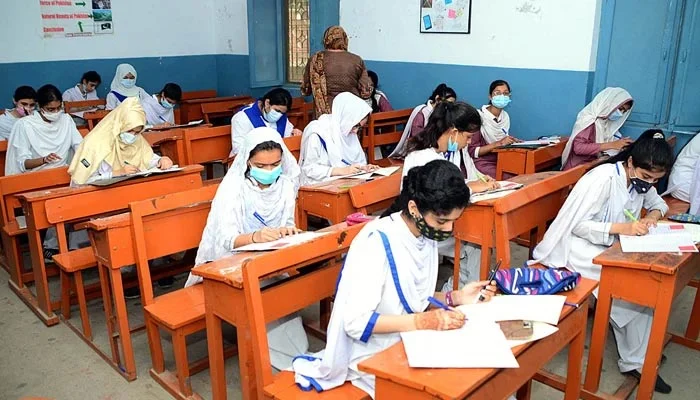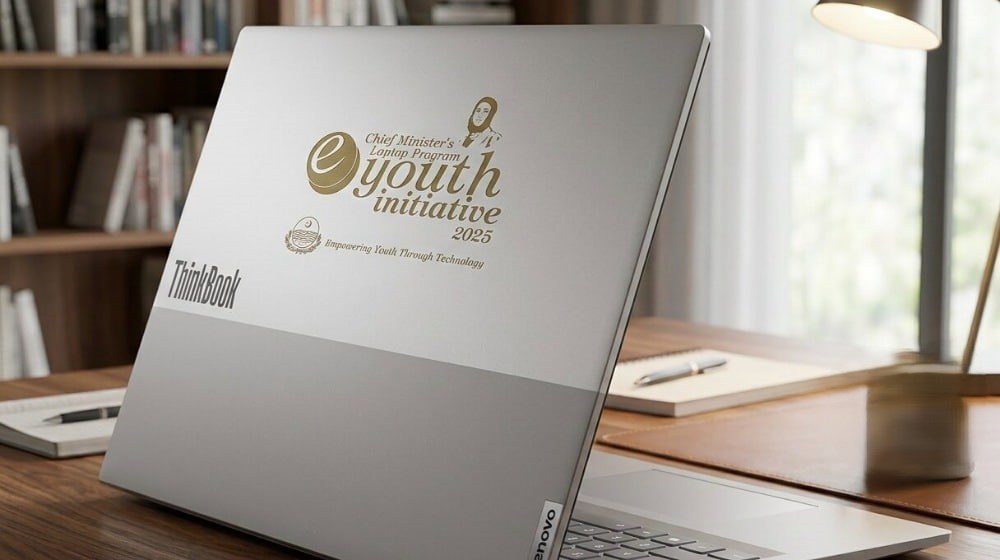The Sindh Universities and Boards Department has officially approved a new grading policy for students from classes 9 to 12 marking one of the most significant educational reforms in recent years. This transformative change will take effect from the upcoming academic session. This is designed to modernize Sindh education system improve transparency and bring local assessment methods in line with global standards.
The newly developed policy replaces the long standing percentage-based evaluation with a more refined grade based structure. According to education officials this system aims to promote fairness accuracy and a deeper understanding of student performance. Instead of focusing on raw marks the new grading framework emphasizes overall academic growth and learning outcomes.
One of the major highlights of this reform is the increase in passing marks. Previously students were required to achieve 33% in each subject to pass. In the new system the student need minimum requirement has been raised to 40%. Instead of depending on memorization this choice encourages students to develop stronger conceptual foundations. By raising the bar the policy hopes to improve academic performance and inspire students to take their studies more seriously.
Introduction of a Comprehensive Grade Scale
The core of this reform is the implementation of a comprehensive grading system. Additionally, multiple performance bands are introduced in the new grading policy to more inclusively and accurately reflect a student abilities. Students who score between 50% to 59% will receive D those who score between 60% to 69% will receive C.
Students who receive scores in the range of 75%-79% will receive B+ while those who receive scores between 70%-74% will receive B. The policy further differentiates excellence by giving students who score between 80% to 84%, 85% to 89% respectively B++ and A grades. Students scoring between 90% and 94% will receive an A+ grade.
It is interesting to note that the 95% to 100% range will also fall under the A+ category. Giving top performers who demonstrate extraordinary subject matter mastery dual recognition. This thorough grading system improves academic evaluation fairness and clarity. It ensures that students are not judged solely by minor percentage differences. It helps teachers identify individual learning strengths and weaknesses.
The system will also make it easier for schools to tailor their teaching strategies improving overall classroom effectiveness. The new grading structure will be implemented across all education boards in Sindh including Karachi, Sukkur, Hyderabad, Larkana, Mirpurkhas, Aga Khan and Nawabshah. Each board will adopt the same criteria to maintain uniformity in student evaluation throughout the province.
Focus on Fairness, Mental Health and Global Alignment
Sindh’s New Grade Based Evaluation Policy
Officials from the Sindh Universities and Boards Department have stated that the new grade-based policy aims to ensure fairness, inclusivity and student well being.
- Designed to reduce academic pressure and stress caused by percentage based evaluations.
- Encourages a supportive and balanced learning environment.
Focus on Holistic Learning
Under this new system student performance will be assessed more comprehensively.
- Emphasizes understanding, skill development and class participation.
- Reduces unhealthy competition over small percentage differences.
- Promotes a growth mindset by valuing consistent effort and improvement.
Alignment with International Standards
The reform aligns Sindh’s education system with global frameworks like Cambridge Assessment and the International Baccalaureate (IB).
- Makes local qualifications easier for foreign universities to interpret.
- Enhances the global credibility of Sindh’s examination boards.
Equal Opportunities Across Institutions
Education experts highlight that the policy will standardize grading across government and private institutions.
- Ensures all students are evaluated under the same criteria.
- Supports merit based admissions and equal opportunities in higher education.
Implementation and Awareness Initiatives
Beginning with the upcoming academic year the new grading scheme will be applied uniformly to all boards according to the Sindh Universities and Boards Department. Nonetheless officials are aware that such a big change calls for careful preparation and awareness. A number of awareness and orientation campaigns will be started throughout the province to help with this.
Schools, educators, parents, and students will all be involved in these campaigns to make sure that everyone is aware of the advantages of the new grading scheme. To assist teachers in adjusting to the new assessment techniques the department also intends to host training sessions and workshops. Teachers will be given advice on how to create assessments with grade distribution and how to give constructive criticism.
Officials have assured that no student will be negatively affected during the transition period. In fact the first few years of implementation will serve as a monitoring phase. It allowing the department to gather feedback from schools and make necessary improvements. This phased approach will ensure a smooth and successful transformation of Sindh education system.
Education analysts have welcomed the initiative as a step in the right direction. Many believe that the new grading policy marks the beginning of a more transparent, equitable and progressive era for Sindh students. Parents and teachers however have stressed the importance of adequate training for educators. Noting that the policy success depends on how effectively it is implemented at the classroom level.
Public Response and Expert Opinions
Teachers, parents and students have all been talking a lot about the new grading policy. Since the previous system placed too much emphasis on grades rather than learning many parents have expressed gratitude for the government decision to modernize the assessment process. They think the new framework will encourage students to prioritize comprehension over memorization.
Teachers have also acknowledged the potential benefits of this shift. Furthermore, they argue that the grade-based evaluation will allow them to assess students more fairly taking into account both academic performance and effort. However they have also called for consistent teacher training and resource development to make the transition successful.
This reform is seen by education experts as a critical step in raising the general standard of education in Sindh. They emphasize how a well designed grading system fosters students confidence creativity and problem solving abilities in addition to their academic progress.
Parhlo Pakistan – Empowering Students Through Knowledge
At Parhlo Pakistan we believe that education is the foundation of progress. Our platform is dedicated to helping Pakistani students access accurate up to date and valuable academic resources. Moreover, we work to make learning easier and more efficient for students nationwide from study guides and educational news to board exam updates and previous papers.
Parhlo Pakistan is committed to keeping students updated on changes that could affect their academic journey like the introduction of Sindh new grading system. Whether you are a student, parent or teacher we want to give you reliable information that help better learning outcomes.
A Step Toward a Modern and Fair Education System
The new grading policy by the Sindh Universities and Boards Department marks a bold and positive transformation in the province education system. Although, by moving away from outdated percentage based assessments and adopting a fair grade oriented structure Sindh is setting a precedent for the rest of the country.
This initiative not only enhances fairness and mental well being and also aligns Sindh education system with international standards opening new doors for students at home and abroad. Through comprehensive planning awareness initiatives and teacher training the policy promises to build a more inclusive and globally competitive learning environment.
The message is clear as Sindh gets ready to put this reform into effect understanding, equity and opportunity are key to the future of education. The province is taking a big step in making sure that every student’s talent and hard work are acknowledged in the most fair and open manner possible with this new grading system.




